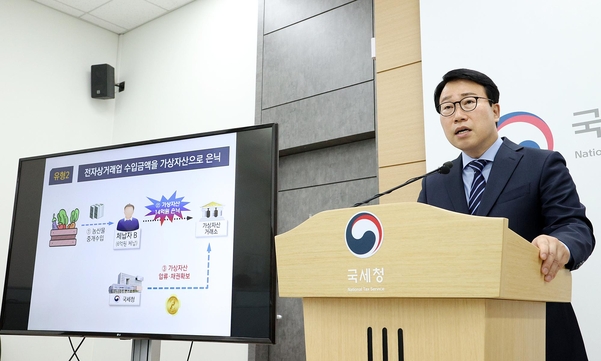Enter 2021.03.15 12:00
Use of virtual assets for business income, real estate, inheritance and gift
Supreme Court “Virtual Assets, Intangible Assets of Property Value”
Mr. A, who runs a hospital in Gangnam, Seoul, was living in a luxurious life, such as living in an expensive apartment, and delinquent 2.7 billion won. As a result of the investigation by the National Tax Service, Mr. A confirmed that he had concealed 3.9 billion won in hospital income as virtual assets (virtual currency). When the National Tax Service seized the virtual asset, Mr. A paid the full amount of the arrears in cash. After transferring the real estate located in Gyeonggi-do for KRW 4.8 billion, the delinquent person B concealed it as a virtual asset without paying the capital gains tax of KRW 1.2 billion. When the IRS seized the virtual asset, the entire amount was redeemed.
The National Tax Service concealed business income income, real estate transfer proceeds, and inherited and gifted property as virtual assets, and began compulsory collection of delinquent payers who did not pay taxes. It is the first time that the National Tax Service has compulsory collection of virtual assets for delinquents among government ministries.

It also investigated e-commerce companies whose sales are rapidly increasing due to the recent coronavirus infection (Corona 19). C, a delinquent person who sells agricultural products online, paid 600 million won in arrears, but the result of an investigation by the National Tax Service was revealed that 1.4 billion won of business income was concealed as a virtual asset. The IRS seized virtual assets and secured all bonds.
In addition, it was found that virtual assets are often used in inheritance or gift. D, the delinquent person, was in arrears of 200 million won in inheritance tax on the 1.7 billion won of financial assets inherited from his father’s death. It also concealed 500 million won of inherited assets as virtual assets. The National Tax Service seized household assets to secure bonds.
Mr. E, the delinquent person, did not pay 2.6 billion won in arrears caused by underreporting the property he received several times from related parties. In addition, 100 million won of the gifted assets were concealed as virtual assets.
Currently, the Internal Revenue Service has seized virtual assets to secure bonds, and Mr. E is undergoing intense follow-up investigations on the assets donated in cash.
The reason why the IRS was able to collect virtual assets forcibly is because virtual assets have economic value and are defined as’electronic tokens’ that can be traded or transferred electronically. In May 2018, the Supreme Court ruled that virtual assets were subject to confiscation, as intangible property with property value.
Through this, it is judged that bonds can be seized for the right to claim returns to the virtual asset exchange used by the debtor and enforced enforcement. In addition, in accordance with the Special Financial Information Act revised in March last year, virtual asset business operators were also included in financial companies (Article 2), and as a result of the existing financial companies’ obligations to report suspicious transactions of illegal property, report high-value cash transactions, and verify customers. Was granted.

An official from the National Tax Service said, “We will quickly respond to new concealment techniques such as property concealment using virtual assets, and we will trace and redeem the concealed property of high-liquid payments until the end.” “I ask for the active report from the people who know the hidden property of the large amount of arrears.”
Meanwhile, the National Tax Service is paying a report reward for those who contributed to the collection of arrears through reporting hidden property of arrears. Rewards are paid up to 2 billion won by applying a payment rate of 5-20% depending on the amount collected.
